Uncategorized
-
 Earth
EarthDeath Valley’s sailing stones caught on the move
Mysterious sailing stones wandering around Death Valley are powered by ice and wind.
-
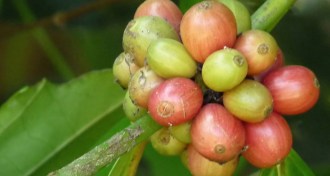 Genetics
GeneticsSource of coffee’s kick found in its genetic code
Coffee doubled up on caffeine-making genes. Those genes evolved independently from similar ones found in tea and chocolate plants.
-
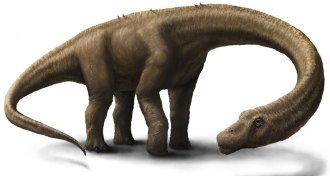 Paleontology
PaleontologyWorld’s largest dinosaur discovered
A plant-eating dinosaur named Dreadnoughtus schrani has claimed the record for most massive land animal discovered to date.
By Meghan Rosen -
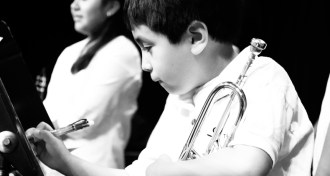 Neuroscience
NeuroscienceChildren’s brains shaped by music training
After two years of an enrichment program, children’s brains showed more sophisticated response to spoken syllables.
-
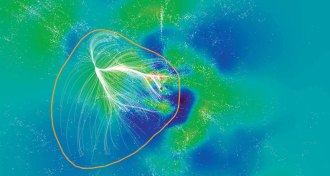 Astronomy
AstronomyMilky Way connected to a vast network of galaxies
The Milky Way galaxy lives on the outer edge of a newly discovered supercluster of galaxies named Laniakea that is 520 million light-years across.
-
 Health & Medicine
Health & MedicineTrial drug improves heart failure patients’ chance of survival
Novartis’ experimental therapy LCZ696 lowers blood pressure and increases survival rates when compared with a standard drug.
By Nathan Seppa -
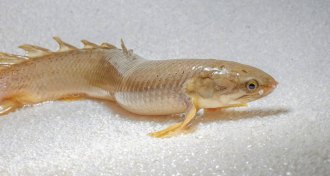 Animals
AnimalsA fish reared out of water walks better
The normally aquatic fish Senegal bichir raised on land suggests how ancient species might have transitioned into terrestrial ones.
By Susan Milius -
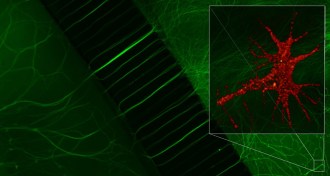 Health & Medicine
Health & MedicineRabies races up nerve cells
By hijacking a transporter protein and hitting the gas, the disease-causing rabies virus races up long nerve cells that stretch through the body, a new study finds.
By Meghan Rosen -
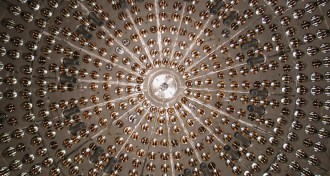 Astronomy
AstronomySubatomic particles give glimpse into sun’s core
For the first time, a subterranean detector has captured neutrinos generated in the main nuclear reactions that power the sun.
-
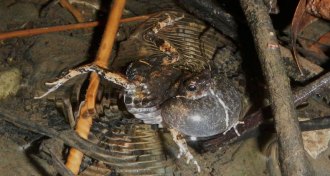 Animals
AnimalsBats hunt ballooning túngara frogs by echolocation
Bat echolocation tracks the billowing vocal sacs of male túngara frogs.
By Nsikan Akpan -
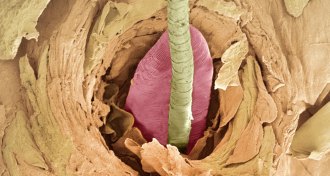 Health & Medicine
Health & MedicineTiny mites are probably crawling all over your face
Two skin mites, relatives of spiders, might populate the faces of all adult humans, according to a DNA survey.
By Nsikan Akpan -
 Life
LifeZMapp drug fully protects monkeys against Ebola virus
In a test, 18 monkeys injected with the Ebola virus and treated with an experimental drug called ZMapp survived.
By Nathan Seppa